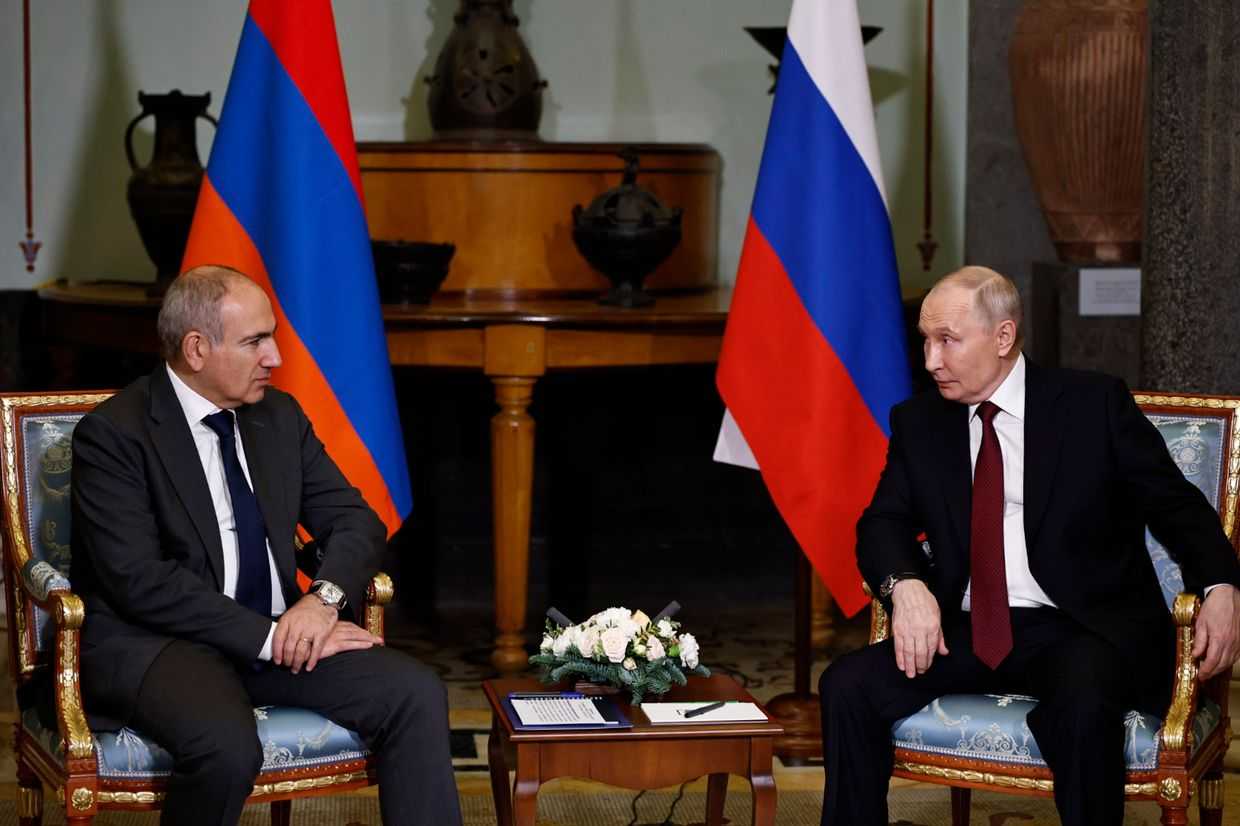

A sizeable community of ethnic Armenians has found itself under fire in northeastern Syria in the wake of Turkey’s offensive. Armenian authorities have stated that they are willing to help them relocate.
Thousands of civilians have fled in the wake of the Turkish bombardment and incursion into northeastern Syria that began on 9 October. The Turkish government claims it is seeking to establish a buffer zone along the border in order to secure the country against Kurdish ‘terror groups’ and to resettle Syrian refugees.
However, a rash of civilian deaths and recent videos showing apparent war crimes committed by Turkey-backed forces, including the summary execution of Kurdish political leader Hevrin Khalaf, have raised worries about the impact the Turkish offensive will have on civilians, especially the region’s ethnic and religious minorities.
It is estimated that around 400–420 Armenian families, roughly 4,000 people, reside in Qamishli, while roughly 16 families live in the town of Tel Abyad. Both cities have been hit by shelling and airstrikes.
In an interview with Azatutyun TV, Armen Melkonyan, the head of the Middle East and Africa Department at the Foreign Ministry of Armenia stated that 13 families from Tell Abyad have already left the town and have temporarily resettled in other parts of Syria. All of the families reportedly left of their own accord and without any official assistance.
On 10 October, the Armenian Embassy in Syria also announced on Facebook that ‘Armenian diplomatic representatives are constantly in touch with Armenian community organisations in Qamishli and other Armenian communities in the northern part of Syria.’
‘Possible steps are being coordinated for relocating our compatriots who wish to do so and providing them with temporary shelters and first aid’, the statement read.
The Embassy also noted that, for the moment, there was no need for immediate relocations.
The Foreign Ministry of Armenia condemned Turkey’s military operations.
‘Armenia condemns the military invasion by Turkey in north-east Syria, which would lead to deterioration of regional security, losses among civilians, mass displacement and eventually to a new humanitarian crisis. The plight of ethnic and religious minorities is of particular concern’, the statement read.
The Syrian Civil War has left millions of people as refugees, among them thousands of ethnic Armenians. Syrian-Armenians are primarily descendants of Armenian Genocide survivors who were deported from what is now Turkey to Ottoman-run concentration camps in the Syrian desert from 1915–1918.
According to the Migration Service of Armenia, 22,000 Syrian-Armenian refugees have resettled to Armenia since the outbreak of the war in 2011.
[Read on OC Media: ‘I will not go back’ — The Syrians making a new life in Armenia]
On 11 October, Secretary of the National Security Council Armen Grigoryan told reporters that the Armenian authorities had been in touch with the Armenian embassy and consular officials in Syria and were open to the possibility of sending humanitarian aid.
‘If there is a need for aid we will naturally make a decision. However, we have to understand that sending aid to the region will be difficult because it is under Turkish supervision’, he said.
In an interview with OC Media, Zareh Sinanyan, High Commissioner of Diaspora Affairs of Armenia, said that officially Armenia is not, as of yet, initiating a resettlement process.
‘There hasn’t been a request on the community level’, he said.
‘There have been individual requests to be removed from the region to other parts of Syria, for example, Aleppo. However, they have been retracted’, explained Sinanyan.
On 12 October, Prime Minister Nikol Pashinyan spoke by phone with Russian President Vladimir Putin as a follow-up to the Commonwealth of Independent States (CIS) Summit which took place in Ashgabat, Turkmenistan on 10 October. During the call, they also discussed the situation in northeastern Syria. However, no other details were given.
In February 2019, with Russian backing, the Armenian Government deployed an 83 person contingent of military deminers and medical personnel to Syria. The Ministry of Defense stated that the mission was purely humanitarian and carried out activities connected with demining, anti-mine education, and providing medical assistance in Aleppo.









